Hello everyone,
mohbaboo's speaking.
How are you all?
I'm sure you remember me ^^
Right?l
Never mind
at least remember the guide that i wrote about writing poetry.l
Today, I came with a very small piece of research or a guide to writing short stories which will help a lot in the process o enriching our new forum with your talented skills of writing and turning them into great masterpieces.l
enough with talking the talk
and let's start walking the walk ^_^l
shall we?l
related topic
☆Your Guide to writing poetry☆
Introduction to short stories
What is a shorts story?l
A short story is a work of fiction that is usually written in prose, often in narrative format. This format aims to be more specific and straight to the point. Short story definitions based upon length differ somewhat even among professional writers. Since the short story format includes a wide range of genres and styles, the actual length is determined by the individual author's preference (or the story's actual needs in terms of creative trajectory or story arc).
Many short story writers define their work through a combination of creative, personal expression and artistic integrity. As a result, many attempt to resist categorization by genre as well as definition by numbers, finding such approaches limiting and counter-intuitive to artistic form and reasoning. As a result, definitions of the short story based upon length splinter even more when the writing process is taken into consideration . (wikipedia)l
Here are some other definitions by other writers:l
A short story is, in some ways, like a photograph--a captured moment of time that is crystalline, though sometimes mysterious, arresting, though perhaps delicate. But while a photo may or may not suggest consequences, a short story always does. In the story's moment of time something important, something irrevocable has occurred. The change may be subtle or obvious, but it is definite and definitive.l
In addition, while it is the audience that supplies the backstory for a photo, it is the writer who must give the audience a beginning, middle, and end of a short story. Without that structure, the piece is not a short story at all but a scene, a vignette, a fragment--evocative, yes, but not emotionally or psychologically satisfying.l
Marilyn Singer, "The Magic Bow" (Stay True) "Fabulous Shoes" (I Believe in Water)l
About twenty years ago I heard someone say that if the novel was a feature film, the short story was a snapshot. I liked that, as a snapshot itself, but when asked to comment, I add that the short story, to me, is a blurred snapshot by an incompetent chronicler, who cannot be trusted as a novelist should be. But the blur, the things one can't see but can only infer, has implications, too: of movement, of cause and effect outside the range of the print. The snapshot catches a moment in time, but the blur proposes an extension beyond the margins. Emotional, spiritual, psychological, as well as (one hopes) narrative and event.
Gregory Maguire,"Chatterbox" (I Believe in Water)l
For myself a short story is fiction that is more immediate and urgent than a novel. I think of it cinematically--the camera zooming in on this one climactic moment, then pulling back on either side of the moment to show all that leads up to and comes after it.
Jacqueline Woodson, "On Earth" (I Believe in Water)
A short story is like the illumination of a match. All the details have to work toward that illumination.l
Donna Bray, editor at Hyperion
Short stories are like Quarter horse racing. Bang! Out of the starting gate as fast as possible and across the finish line before the audience can assemble their thought. The story blindly races forward. But, the author, the horse trainer, has trained very hard ahead of time.l
Novels are like Thoroughbred racing. The starting gate snaps open and they're off, but with more style and grace and planning. Those longer races take a lot of mental grit during the race.lMarian Bray, "The Pale Mare" (Stay True)
and there are many other definitions which you may read in the following link:l
http://www.marilynsinger.net/shortstories.htm
The short story is as old as the earliest tale-telling. Many longer narratives such as epics and myths. But as a distinct literary genre, the short story came into its own during the early nineteenth century. Many writers have created successful short stories – but those which follow are the prose artists who have had most influence on its development in terms of form. We will be adding more guidance notes and examples as time goes on.l
Edgar Allen Poe is famous for his Tales of Mystery and Imagination. These are tight, beautifully crafted exercises in plot, suspense, psychological drama, and sheer horror. He also invented the detective story. This is the birth of the modern short story. Poe was writing for magazines and journals. He has a spectacularly florid style, and his settings of dungeons and crumbling houses come straight out of the Gothic tradition.l
He’s most famous for stories such as ‘The Pit and the Pendulum’, ‘The Black Cat’, and ‘The Fall of the House of Usher’ which vividly dramatize extreme states of psychological terror, anxiety, and what we would now call existential threat. He also theorized about the story, claiming that every part should be contributing to the whole. This edition is good because it includes the best of the stories, plus some essays and reviews. An ideal starting point.l
Characteristics of short stories
Short stories tend to be less complex than novels. Usually a short story focuses on one incident, has a single plot, a single setting, a small number of characters, and covers a short period of time. It can be boiled down to "Man goes up tree. Man gets rocks thrown at him. Man goes down tree."l
In longer forms of fiction, stories tend to contain certain core elements of dramatic structure: exposition (the introduction of setting, situation and main characters); complication (the event that introduces the conflict); rising action, crisis (the decisive moment for the protagonist and his commitment to a course of action); climax (the point of highest interest in terms of the conflict and the point with the most action); resolution (the point when the conflict is resolved); and moral.l
Because of their length, short stories may or may not follow this pattern. Some do not follow patterns at all. For example, modern short stories only occasionally have an exposition. More typical, though, is an abrupt beginning, with the story starting in the middle of the action (in medias res). As with longer stories, plots of short stories also have a climax, crisis, or turning point. However, the endings of many short stories are abrupt and open and may or may not have a moral or practical lesson. As with any art form, the exact characteristics of a short story will vary by creator.l
When short stories intend to convey a specific ethical or moral perspective, they fall into a more specific sub-category called Parables (or Fables). This specific kind of short story has been used by spiritual and religious leaders worldwide to inspire, enlighten, and educate their followers.l (wikipedia)l
for more
visit the following link
http://en.wikipedia.org/wiki/Short_story
steps for writing short stories and how to start doing so.l
There are different steps, but they are, in one way or another, share the basis with some minor differences in the minors.l
A
Whether you are an aspiring professional writer, the short story is the perfect medium. While writing a novel is a Herculean task, just about anybody can craft and, most importantly, finish, a short story. That doesn’t mean that short stories are easy to write, though, and it certainly doesn’t mean that they aren’t as artistic and valuable as novels. With practice, patience, and a passion for writing, they can be every bit as moving and memorable as their much longer cousins.l
1
Read plenty of short stories. Nothing can help you “learn” how to write a good short story better than reading good short stories. Take note of the style and how they have used the small amount of words to their advantage. Choose authors that you enjoy, and also choose some of the “classics.” Pay attention to how the authors develop their characters, write dialogue, and structure their plots.
2
Gather ideas for your story. Inspiration can strike at any time, so carry a notepad with you wherever you go so that you can write down story ideas as they come to you. Most of the time, you’ll just think of small snippets of information (a catastrophic event around which you can build a plot, a character’s name or appearance, etc.), but sometimes you’ll get lucky and a whole story will reveal itself to you in a couple of minutes. If you have trouble finding inspiration, or if you need to write a story in a hurry (for a class, for example)
3
Choose an idea and start with basics of a short story. At the very least, a story should have an exposition (the story leading up to the climax), rising action (events leading to the turning point), a climax (a turning point in a story brought about by conflict between characters or within a character), falling action (your story begins to conclude), and a resolution (a satisfying ending to the story in which the central conflict is resolved - or not). Move backward or forward from your starting idea (it may or may not be the beginning of the story), and ask “What happens next?” or “what happened before this?”
4
Know your characters. For a story to be believable, the characters have to be believable, and their actions should appear inevitable given who they are. In other words, you should know as much as possible about your characters, from what their central motivations are to what their favorite foods are. You won’t include all this information in your story, but the more you know, the more your characters will come to life, both for you and for the reader. Sometimes it helps just to listen to unimportant conversations between characters in your head, even if it won't be in the story.
5
Limit the breadth of your story. A novel can occur over millions of years and include a multitude of subplots, a variety of locations, and an army of supporting characters. The main events of a short story should occur in a relatively short period of time (days or even minutes), and you typically won’t be able to develop effectively more than one plot, two or three main characters, and one setting. If your story has much more breadth, it probably needs to be a novella or novel.
6
Decide who will tell the story. There are three main points of view from which to tell a story: first-person (“I”), second-person (“you”), and third-person (“he” or “she”). In a first-person story, a character in the story tells the story; in the second-person the reader is made a character in the story; and in the third-person, an outside narrator tells the story. (Second-person narration is rarely used.) Keep in mind that first-person narrators can only tell what they know (which will be limited to what they see firsthand or are told by others), while third-person narrators can either know everything and explore every character’s thoughts, or be limited to only that which can be observed.
7
Start writing. Depending on how thoroughly you’ve sketched out your plot and characters, the actual writing process may simply be one of choosing the right words. Generally, however, writing is arduous. You probably won’t know your characters and plot as well as you thought, but it doesn’t matter. Outlines are not the same as stories, and actually writing a story is the only way to complete one.
8
Come out swinging. The first page—some would say the first sentence—of any writing should grab the reader’s attention and leave him/her wanting more. A quick start is especially important in short stories because you don’t have much room to tell your story. Don’t dilly-dally with long introductions of the characters or uninteresting descriptions of the setting: get right into the plot, and reveal details about the characters and setting piece-by-piece as you go along.
9
Keep writing. You’re almost certain to hit some bumps in the road to finishing your story. You’ve got to work through them, though. Set aside a time to write each and every day, and make it a goal to finish, say, a page each day. Even if you end up throwing away what you wrote on that day, you’ve been writing and thinking about the story, and that will keep you going in the long run.
10
Let the story "write itself." As you write your story, you may want to turn your plot in a different direction than you had planned, or you may want to substantially change or remove a character. Listen to your characters if they tell you to do something different, and don’t worry about scrapping your plans altogether if you can make a better story as you go.
11
Revise and edit. When you’ve finished the story, go back through it and correct mechanical mistakes, as well as logical and semantic errors. In general, make sure the story flows and the characters and their problems are introduced and resolved appropriately. If you have time, put the completed story down for a few days or weeks before editing. Distancing yourself from the story in this way will help you see it more clearly when you pick it back up.
12
Get some second opinions. Send your revised and edited story off to a trusted friend or relative for revisions, edits, and suggestions. Let your reviewers know that you want to hear their real opinions of the story. Give them time to read it and think about it, and give them a copy that they can write on. Make sure you consider everything that your reviewers tell you—not just the parts you would like to hear. Thank your reviewers for reading your story, and don’t argue with them.
13
Incorporate whatever edits, revisions, and suggestions you feel are valid. Your writing will be better if you can carefully consider constructive criticism, but you don’t have to follow all the advice you get. Some of the suggestions may not be very good. It’s your story, and you need to make the final call.
B
A short story begins as close to the conclusion as possible, and grabs the reader from the very first line. It conserves character and scenes, typically focuses on just one problem, and drives towards a sudden, unexpected revelation. (Kathy Kennedy and Dennis G. Jerz)l
1
Get Started: Emergency Tips
2
Write a Catchy First Paragraph
3
Develop Your Characters
4
Choose a Point of View
5
Write Meaningful Dialogue
6
Use Setting and Context
7
Set up the Plot
8
Create Conflict and Tension
9
Build to a Crisis or a Climax
10
Deliver a Resolution
Note: press on the step to see the description
C
Why do some stories truly ring in the mind while others leave you with the feeling of 'what was the point?'. To make your short stories more effective, try to keep in mind these following points while writing:
1. Have a clear theme. What is the story about? That doesn't mean what is the plot line, the sequence of events or the character's actions, it means what is the underlying message or statement behind the words. Get this right and your story will have more resonance in the minds of your readers.
2. An effective short story covers a very short time span. It may be one single event that proves pivotal in the life of the character, and that event will illustrate the theme.
3. Don't have too many characters. Each new character will bring a new dimension to the story, and for an effective short story too many diverse dimensions (or directions) will dilute the theme. Have only enough characters to effectively illustrate the theme.
4. Make every word count. There is no room for unnecessary expansion in a short story. If each word is not working towards putting across the theme, delete it.
5. Focus. The best stories are the ones that follow a narrow subject line. What is the point of your story? Its point is its theme. It's tempting to digress, but in a 'short' you have to follow the straight and narrow otherwise you end up with either a novel beginning or a hodgepodge of ideas that add up to nothing.
The components of the short story
When you take a story and break it down, you will usually find the same five basic components:
1
Protagonist
The protagonist is the "I Want" or "I Need" character that drives the plot of the story. It is your job as the writer to give this character a goal or desire and then set up obstacles to the achievement to that goal. Since the protagonist is your main character, you want to know everything about this person. The more you know, the more realistic he or she becomes and the easier it is for readers to identify with and believe in his or her plight.l
2
Setting
Setting is essential to a story in that it helps to put your readers on familiar ground with your characters. It explores the time, the place, and the elements surrounding your character. Keep in mind that the events in a short story usually cover a relatively short amount of time.l
3
Central Conflict/Antagonist
The antagonist is the main obstacle your protagonist must confront to reach his or her goal. Often the antagonist will materialize as a secondary character or group of characters in the plot. Antagonists can be other people, events or just about anything that has a habit of getting in the way of your protagonist reaching the goal you've set up. Just as your protagonist is in an "I need" frame of mind, so too is your antagonist, though the antagonist's need is to thwart every attempt of your protagonist.
The story wouldn't be interesting without the conflict, and getting through it can't be easy or else readers will wind up dissatisfied. You want to make sure your conflict intensifies gradually until it reaches a breaking point.
As an example, your character needs to reach her destination, but her car breaks down. She calls a taxi, but when the driver shows up, she can't find her wallet. Her best friend comes along and offers her a ride, but on the way they get stuck in traffic. These little events actively work against your character and build the tension to a breaking point.
4
Climax
This breaking point will result in the climax. The character realizes that her destination is only a couple of blocks from where she is stuck in traffic, and if she gets out and runs she'll just make it on time. You're at the highest peak in the roller coaster ride, and there's nowhere to go now but down. The climax is the release your protagonist finds after a long and arduous struggle against the odds.
5
Resolution
The conflict has been resolved, and it is time to wind the story down. Resolution does not always mean "happy ending", but in some cases it will. For example, the protagonist mentioned in the above example arrives at her destination just in time for her appointment. What happens from there determines whether she has a happy or unhappy ending, but the most important thing is that you've solved the central conflict by getting her to her destination. Try to avoid tying up all the loose ends into a neat little bow. Life itself doesn't wrap up that way, so neither should your fiction.
The Story in Three Parts
Within the five essential parts that make up the short story, the actual story itself will break down into three sections: the beginning, middle and ending.
1
First Paragraph
The first paragraph is one of the most important paragraphs in the entire story. It is the bait that will capture your reader so you can reel them into the rest of the story. Start out with a catchy sentence and follow it with enough detail to entice your reader to read on. Get the action started quickly in a short story because you only have a limited amount of time in which to tell things.
2
The Body
The body of your story is going to contain the majority of your plot. Your protagonist's conflicts and interaction with the antagonist will follow through to the climax. The key to this section is making sure that your writing remains fresh and consistent. You may find while you're writing that you want to break away from the original plan or outline. Don't be afraid to follow your instincts.
3
Conclusion
You've resolved the major conflict and are ready to end the story. There are several ways to stylistically end a story. You can use character dialogue, character revelation, parallel events that occurred in the beginning, an image or event representative of the resolution or a symbolic image or event. You may feel compelled to wrap everything up neatly, but don't overdo it. Don't force the resolution for your reader, it is something that should occur naturally. l
Here, I collected some short stories for you to read and practice the act of reading and expanding your knowledge and the bank of vocabulary.l
Some of the files are just indexes for you to know the names of the stories in order for you to search.l
for more, search in this website
http://pdf-search-engine.com/short-stories-2-pdf.html
Finally !l
I didn't think i could do it, but all thanks to Allah then to everyone in our beloved forum. I would like to encourage you and especially those who got the talent of writing stories in any language to try to get the gist of what I wrote here to start writing their own story.l
I hope that introduced something new that you can rely on.l
May Allah bless you all.l
you brother,l
mohbaboo
some extra resources
- BBC: Get Writing: How to Start Writing a Story
- BBC World Service: How to Write
- Author Network: How to Write a Short Story
- ESL Teacher's Board: How to Write a Short Story
- eHow: How To Write a Short Story
- Joseph Masucci: The Least You Should Know About Outlining Your Short Story (2000)
- Seton Hill University: 10 Tips for Novice Creative Writers
- Seventh Sanctum: Online Story Generator
- TIME: How to Write a Short Story
- Wikipedia: Antagonist
- wikiHow: How to Write a Short Story
- wikiHow: How to Write a Great Short Story
- Writing101.com: Tips for Writing a Short Story
- Writing Corner: You Can Write a Short Story
- Writing-World.com: Your Story Outline: What's It All About?l
☆The Second Guide. The complete Guide to Writing Short Stories☆
[ منتدى اللغة الإنجليزية ]
النتائج 1 إلى 9 من 9
-
25-9-2010 11:15 AM #1


- تاريخ التسجيل
- Apr 2008
- المـشـــاركــات
- 8,616
- الــــدولــــــــة
- السعودية
- الــجـــــنــــــس
- ذكر
الـتـــقـــــيـيــم:









 مجموع الاوسمة: 48
مجموع الاوسمة: 48
 ☆The Second Guide. The complete Guide to Writing Short Stories☆
☆The Second Guide. The complete Guide to Writing Short Stories☆
-
25-9-2010 04:58 PM #2



- تاريخ التسجيل
- Oct 2006
- المـشـــاركــات
- 1,681
- الــــدولــــــــة
- السعودية
- الــجـــــنــــــس
- أنثى
الـتـــقـــــيـيــم:










 رد: ☆The Second Guide. The complete Guide to Writing Short Stories☆
Woow
رد: ☆The Second Guide. The complete Guide to Writing Short Stories☆
Woow
Gorgeous !
honestly I wrote two short stories till now and I really don't know whether I followed these steps or not
what it concerns me then is how to make it interesting though non of them managed to be so
Now we have such a perfect guide indeed
way to have a perfect English literature forum
Thanks Alotالتعديل الأخير تم بواسطة أسمـــاء ; 30-9-2010 الساعة 08:03 PM
-
25-9-2010 05:08 PM #3
 رد: ☆The Second Guide. The complete Guide to Writing Short Stories☆
hello there
رد: ☆The Second Guide. The complete Guide to Writing Short Stories☆
hello there
what a nice guide ... it's so lovely : )
i am not a lot with Short stories ... but i read some good ones
this reminds me of Aristotelean ( i hope i wrote it right ) form of plot structureWhen you take a story and break it down, you will usually find the same five basic components:
i think this cloud of info gonna be a useful thing for whom wanna know more about short stories
okay .... thanx a lot and lead more on this way !
-
30-9-2010 01:06 PM #4


- تاريخ التسجيل
- Jan 2009
- المـشـــاركــات
- 757
- الــــدولــــــــة
- السعودية
- الــجـــــنــــــس
- ذكر
الـتـــقـــــيـيــم:










 رد: ☆The Second Guide. The complete Guide to Writing Short Stories☆
thanks a lot mohbaboo
رد: ☆The Second Guide. The complete Guide to Writing Short Stories☆
thanks a lot mohbaboo
you are an awesome
I will try writing short story by the steps that you mentioned
thanks again
see ya
-
30-9-2010 07:11 PM #5



- تاريخ التسجيل
- Dec 2008
- المـشـــاركــات
- 285
- الــــدولــــــــة
- السعودية
- الــجـــــنــــــس
- أنثى
الـتـــقـــــيـيــم:


 رد: ☆The Second Guide. The complete Guide to Writing Short Stories☆
OOh did you? I'd love to read your short stories if you dont mind
رد: ☆The Second Guide. The complete Guide to Writing Short Stories☆
OOh did you? I'd love to read your short stories if you dont mind
I'm interested in how others write their own imaginative stories
Please do send me the stories you wrote or if you posted them anywhere
Bunch of thanks
I too write stories without following these steps
Maybe cause its not short stories ^^; well I don't know
But you helped me a lot
Thank you
-
1-10-2010 12:40 AM #6


- تاريخ التسجيل
- Jan 2010
- المـشـــاركــات
- 247
- الــــدولــــــــة
- فلسطين
- الــجـــــنــــــس
- ذكر
الـتـــقـــــيـيــم:





 رد: ☆The Second Guide. The complete Guide to Writing Short Stories☆
ITS VERY IMPORTANT TO RIDEING
رد: ☆The Second Guide. The complete Guide to Writing Short Stories☆
ITS VERY IMPORTANT TO RIDEING
-
27-12-2010 05:15 PM #7



- تاريخ التسجيل
- Sep 2009
- المـشـــاركــات
- 3,204
- الــــدولــــــــة
- السعودية
- الــجـــــنــــــس
- أنثى
الـتـــقـــــيـيــم:









 مجموع الاوسمة: 14
مجموع الاوسمة: 14 رد: ☆The Second Guide. The complete Guide to Writing Short Stories☆
..Hi
رد: ☆The Second Guide. The complete Guide to Writing Short Stories☆
..Hi
How are you Brother??
the idea is very wonderful
I can not write english stories because my language is not very well
with my regard
Miaka Yuki
>.<
التعديل الأخير تم بواسطة Miaka Yuki ; 23-1-2011 الساعة 07:33 PM سبب آخر: .Error
-
4-2-2011 10:24 PM #8


- تاريخ التسجيل
- Nov 2008
- المـشـــاركــات
- 749
- الــــدولــــــــة
- العراق
- الــجـــــنــــــس
- ذكر
الـتـــقـــــيـيــم:










 رد: ☆The Second Guide. The complete Guide to Writing Short Stories☆
this is really nice topic
رد: ☆The Second Guide. The complete Guide to Writing Short Stories☆
this is really nice topic
I loved ur topic my dear Mohbaboo and it's a brilliant achievement here like the others
I frankly love stories but not so much^ ^, I love novels more although this topic makes a person loves stories and makes him loves writing it
I really appreciate ur effort here and I'm happy to be here read and put my admiration in a modest comment^ ^thanks and keep going
-
5-2-2011 12:47 PM #9
 رد: ☆The Second Guide. The complete Guide to Writing Short Stories☆
That's great Mahbaboo
رد: ☆The Second Guide. The complete Guide to Writing Short Stories☆
That's great Mahbaboo
Wonderful
I will go through it
الكلمات الدلالية لهذا الموضوع
Loading...





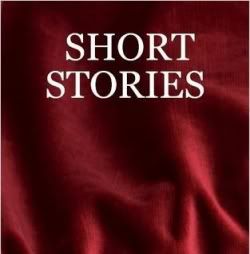




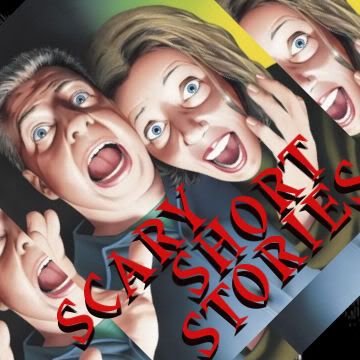

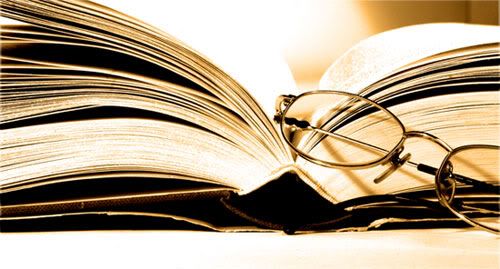

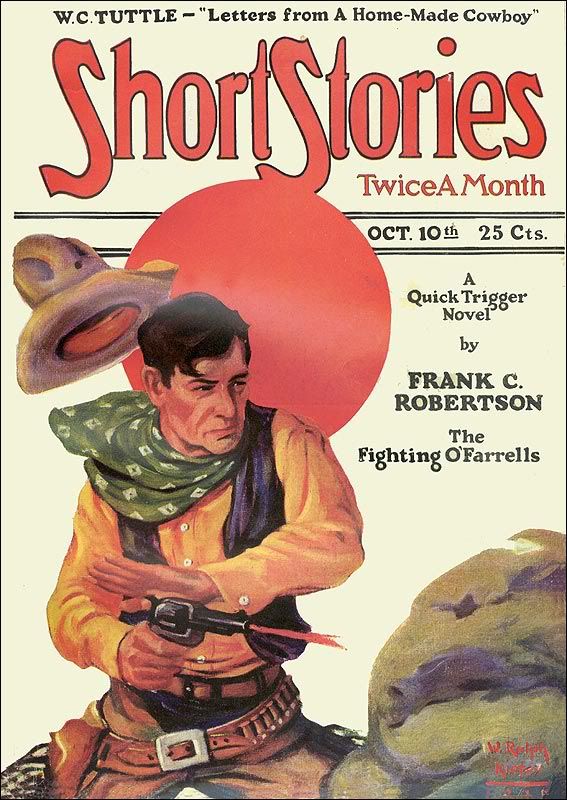

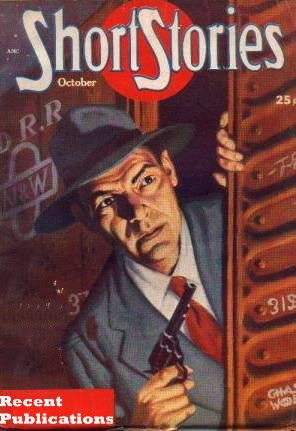

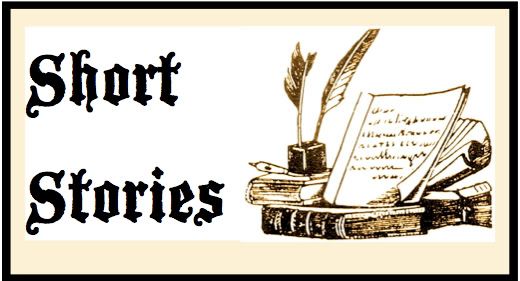


 رد مع اقتباس
رد مع اقتباس

![~[ وسام مشارِكة متميزة ]~ ~[ وسام مشارِكة متميزة ]~](http://www.msoms-anime.net/modsimages/S-girl.gif)


![[ المركز الثالث ] [ المركز الثالث ]](http://www.msoms-anime.net/modsimages/2011/3rd.png)





![~[ وسام مشارِك متميز ]~ ~[ وسام مشارِك متميز ]~](http://www.msoms-anime.net/modsimages/S-boy.gif)




المفضلات